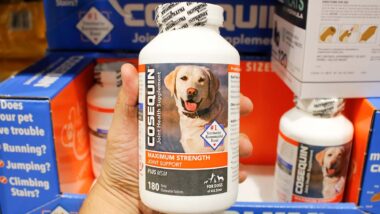Top Class Actions’s website and social media posts use affiliate links. If you make a purchase using such links, we may receive a commission, but it will not result in any additional charges to you. Please review our Affiliate Link Disclosure for more information.

Walgreens Cough Syrup Class Action Overview:
- Who: Walgreens has been hit with a class action lawsuit that alleges it misleads consumers about the effects of its cough medicines.
- What: Tracy Hall argues the active ingredient in the Walgreens’ cough medicines causes drowsiness despite the company advertising the products as being non-drowsy.
- Where: The case is pending in Illinois federal court.
Despite being advertised as non-drowsy, Walgreens’ home brand cold and flu products make consumers drowsy due to their active ingredient, Dextromethorphan Hydrobromide (DXM), a new false advertising class action lawsuit alleges.
Tracy Hall filed the class action in Illinois alleging that the company commits breach of warranty and violates consumer laws with the marketing of its Walgreen non-drowsy products.
Hall says in the claim that a well-known and scientifically proven side effect of the active ingredient Dextromethorphan Hydrobromide is drowsiness, so much so that pilots are forbidden from taking medication with the ingredient before flying.
Hall says that she purchased some of the Walgreens-brand cough medicine, WalTussin DM, in 2019 thinking it would be non-drowsy as the packaging assured. However, she says, when she took the medicine she became unexpectedly drowsy.
“She would not have bought the Walgreens medication had she known that the product did, in fact, cause drowsiness, and that drowsiness was a known side-effect of the product,” the class action states.
Products Do Not Disclose They Cause Drowsiness Or That Drowsiness Is Side Effect, Plaintiff Says
The products, which all say “non-drowsy” on the front label, do not disclose anywhere that they do or can cause drowsiness or that drowsiness is a side effect, Hall argues.
“Defendants labeled the products this way because they intended consumers to rely on the labels and to believe that the products would not cause drowsiness, so that consumers would buy more products or pay more for them,” she alleges.
The class action lawsuit cites a study that found DXM causes drowsiness in doses even lower than those recommended by Walgreens and says that the FDA’s adverse event report database confirms that “sedation” is one of the most frequently cited side effects of dextromethorphan-containing products.
Hall wants to represent consumers nationwide and is seeking certification of the class, damages, restitution, disgorgement, interest, legal fees and costs, and a jury trial.
Walgreens isn’t alone in facing legal action over its non-drowsy marketing claims of products that contain DXM. This month, DayQuil was hit with a class action lawsuit over the same claims by consumer Jacqueline Clay, who argues the company violates New York consumer protection acts and federal warranty laws with its non-drowsy advertising.
Meanwhile, Walgreens recently had to pay workers $13.75 million to resolve an employee class action lawsuit alleging the pharmacy mismanaged its retirement savings plan.
According to a 2019 class action lawsuit filed in Illinois, Walgreens introduced Northern Trust Focus Target Retirement Trust Funds in 2013 despite a history of poor performance. Over the course of nearly a decade, the Northern Trust funds reportedly performed worse than 70 percent to 100 percent of peer funds.
Despite this poor performance, Walgreens allegedly continued to keep the funds for years and even added more Northern Trust funds to its retirement savings plan lineup.
Have you ever taken cough medicine advertised as non-drowsy and felt drowsy afterwards? Tell us your experience in the comments section below!
The plaintiff is represented by Jonas Jacobsen and Simon Franzini of Dovel & Luner, LLP.
The Walgreens Non-Drowsy Medicine Class Action Lawsuit is Hall v. Walgreens Boots Alliance, Inc., et al., Case No. 1:22-cv-00024, in the U.S. District Court Northern District of Illinois.
Don’t Miss Out!
Check out our list of Class Action Lawsuits and Class Action Settlements you may qualify to join!
Read About More Class Action Lawsuits & Class Action Settlements:
- The Salvation Army ‘Forced Labor,’ Abused ARC Participants, Alleges Class Action
- Amazon Warehouse Workers’ Minimum Wage Class Action Removed to Federal Court
- Judge Dismisses Child Labor Class Action Against Apple, Google Alphabet, Microsoft, Dell and Tesla
- Facebook Harmed Investors With Misleading Statements, Annual Financial Reports, Says Class Action















51 thoughts onWalgreens Class Action Alleges Company Misleads Customers With its Non-Drowsy Cough Medicines
Add me
Add me
Add me please
Please add me
add me
Add me please. Thank you
Please add me. I thought I may have been having a reaction as if something was wrong with me.. thank you
I’ve many times gotten drowsy from this product
Add me I got ďayquil over the winter
Please add me